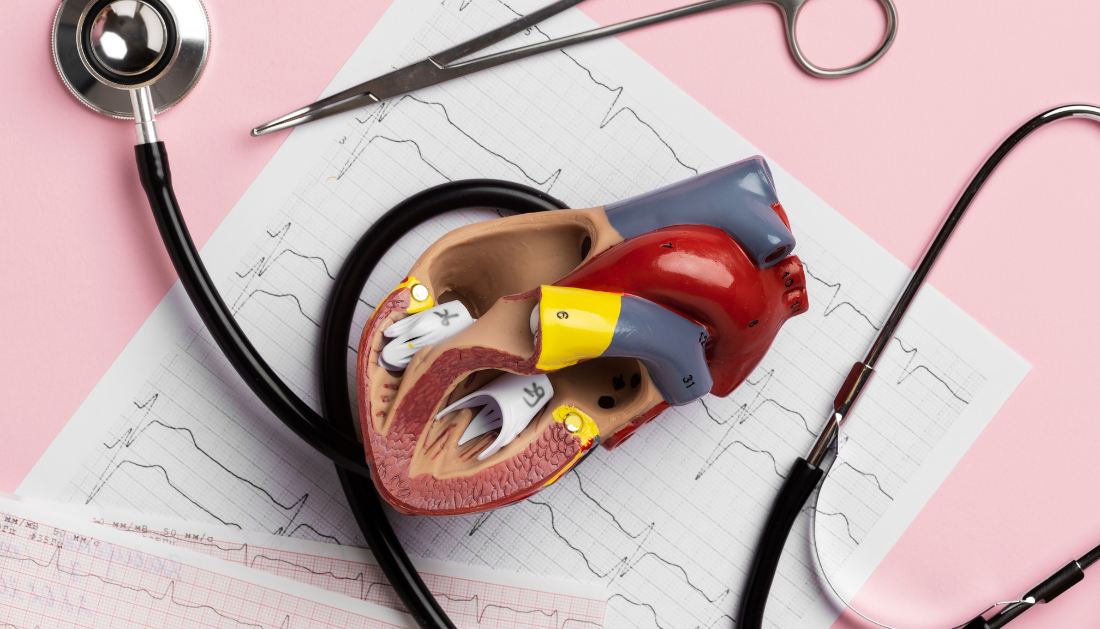

Researchers at the Icahn School of Medicine at Mount Sinai have discovered unusual coding variants in 17 genes that provide insight into the molecular causes of coronary artery disease (CAD), the world’s leading cause of morbidity and mortality. They have done this by using advanced artificial intelligence technology.
The findings, which are described in Nature Genetics, identify genetic variables that influence heart disease and pave the way for more specialized and focused cardiovascular care methods.
As previously reported by the authors in The Lancet, the researchers employed an in silico (computer-derived) score for coronary artery disease (ISCAD) that holistically captures CAD. Hundreds of distinct clinical data from the electronic health record, such as vital signs, test results, prescriptions, symptoms, and diagnoses, are incorporated into the ISCAD score. They conducted a thorough meta-analysis using the electronic health records of 604,914 people from the UK Biobank, All of Us Research Program, and BioMe Biobank to train machine learning models and calculate the score.
Next, the score was examined for correlation with extremely rare and rare coding variations identified in these people’s exome sequences. The research team also carried out additional analysis on the identified genes to examine, among other things, their participation in causative CAD risk factors, clinical symptoms of CAD, and their relationships with CAD status in conventional large-scale genome-wide association studies.
“Our findings help us understand how these 17 genes are involved in coronary artery disease. Some of these genes are already known to influence heart disease development, while others have never been linked to it before,” says Ron Do, Ph.D., senior study author and the Charles Bronfman Professor in Personalized Medicine at Icahn Mount Sinai. “Our study shows how machine learning tools can uncover genetic insights that traditional methods might miss when comparing cases and controls. This could lead to new ways to identify biological mechanisms of heart disease or gene targets for treatment.”
Rare coding variations can significantly affect an individual’s risk or susceptibility to disease when they are present, as they are found in a small number of people. Consequently, research on these variants can help determine treatment targets and is crucial to comprehending the genetic basis of disorders.
The difficulties encountered over the past ten years in locating uncommon coding variants linked to CAD using conventional techniques that depend on cases and controls that have been identified served as the impetus for the investigation. The inability of diagnostic codes to adequately represent the intricacy of CAD led the investigators to look into alternative lines of inquiry.
“Our previous Lancet paper showed that a machine learning model trained with electronic health records can generate an in silico score for coronary artery disease, capturing disease across its spectrum,” says lead author Ben Omega Petrazzini, Associate Bioinformatician in Dr. Do’s lab at Icahn Mount Sinai. “Based on these findings, we hypothesized that the in-silico score for CAD could reveal novel rare coding variants related to CAD by offering a more holistic view of the disease.”
To further their ongoing efforts to better understand disease mechanisms, find new treatments, and enhance patient outcomes, the researchers now intend to look into the role of the identified genes in CAD biology and consider possible uses of machine learning in the genetic study of other complex diseases.
For more information: Exome sequence analysis identifies rare coding variants associated with a machine learning-based marker for coronary artery disease, Nature Genetics, DOI: 10.1038/s41588-024-01791-x
more recommended stories
 CTNNB1 Syndrome Study Explores Beta-Catenin Defects
CTNNB1 Syndrome Study Explores Beta-Catenin DefectsKey Takeaways Researchers in Spain are.
 Tuberculosis Breakthrough with Experimental Antibiotics
Tuberculosis Breakthrough with Experimental AntibioticsKey Takeaways Experimental antibiotics disrupt a.
 National Healthy Longevity Trial Receives Federal Support
National Healthy Longevity Trial Receives Federal SupportKey Summary Up to $38 million.
 Red Blood Cells Improve Glucose Tolerance Under Hypoxia
Red Blood Cells Improve Glucose Tolerance Under HypoxiaKey Takeaways for Clinicians Chronic hypoxia.
 Nanoplastics in Brain Tissue and Neurological Risk
Nanoplastics in Brain Tissue and Neurological RiskKey Takeaways for HCPs Nanoplastics are.
 AI Predicts Chronic GVHD Risk After Stem Cell Transplant
AI Predicts Chronic GVHD Risk After Stem Cell TransplantKey Takeaways A new AI-driven tool,.
 Red Meat Consumption Linked to Higher Diabetes Odds
Red Meat Consumption Linked to Higher Diabetes OddsKey Takeaways Higher intake of total,.
 Pediatric Crohn’s Disease Microbial Signature Identified
Pediatric Crohn’s Disease Microbial Signature IdentifiedKey Points at a Glance NYU.
 Nanovaccine Design Boosts Immune Attack on HPV Tumors
Nanovaccine Design Boosts Immune Attack on HPV TumorsKey Highlights Reconfiguring peptide orientation significantly.
 High-Fat Diets Cause Damage to Metabolic Health
High-Fat Diets Cause Damage to Metabolic HealthKey Points Takeaways High-fat and ketogenic.

Leave a Comment